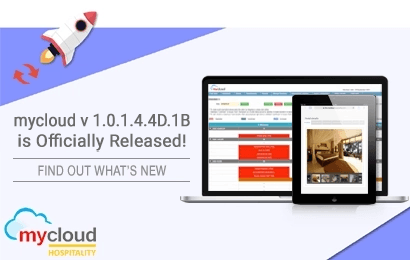
We recently got a chance to interview Christoph Hütter, a non-traditional revenue manager and revenue strategy consultant who helps hotel properties grow their business and gain a competitive advantage by using Revenue Management combined with Process Improvement.
In this interview, he explains the best practices in revenue management and how automating revenue management using hotel software technology can help hoteliers increase profitability and productivity.
1. What is revenue management in the hotel industry?
At its core, revenue management’s objective is to grow top-line revenue to maximize bottom-line profitability.
Initially, when the hotel industry was still predominantly speaking of yield management, this simply meant increasing and decreasing prices depending on market demand. Dynamic pricing was born and allowed hotels to optimize their pricing strategy to maximize yield (i.e. room revenue).
But these days are long gone. Today, revenue management has evolved far beyond mere yielding prices.
There are revenue management opportunities beyond guest rooms and across the entire hotel operation. And as COVID-19 has taught us to sometimes look even beyond traditional hotel revenue streams.
2. Why is revenue management important for hotels?
Revenue management is often the driving force behind growth. It can set the pace by uncovering opportunities.
This is especially important nowadays as many traditional approaches like yielding rates and running promotions on OTAs don’t cut it anymore.
For a long time revenue management was described as the art of turning away business, hotels have to go out and find business. We need a hunter mentality.
3. Strategies to use to boost top-line revenue at your property?
What works and what doesn’t work will very much depend on each property and its market. The importance is to go back to the basics and start there. Make sure everything is set up for success.
We have to remember that at the core we are in the hospitality business. We need to be hospitable and put the guest at the center of all our efforts.
That’s where we need to start. Revisit our SOPs and different touchpoints and make sure our guests have an excellent guest experience. That starts with the discovery phase and booking process, check-in, the actual stay until departure, and the post-departure phase.
The right tech stack is crucial. Technology can provide an enormous competitive advantage and is one of the strengths of independent hotels.
It is important to be able to properly analyze data and find opportunities for improvement within the booking behavior and other points of interactions of prospects and guests.
4. With revenue management automation in place, how much time does an average hotelier save?
I don’t think a globally valid statement could answer this as it depends on each property and each market.
The importance is that hoteliers constantly focus on finding and optimizing revenue opportunities. Automation in data analysis, as well as operational execution, helps in freeing up the revenue manager’s time to look for more opportunities. It’s a cycle really.
This is even more important when there is no dedicated revenue manager at the hotel.
5. How should hotels forecast price after this COVID Pandemic to bring back guests?
This is, of course, the big dilemma hotels are facing right now. Forecasting is the basis of any revenue and pricing strategy. And it has always heavily been guided by historical data.
With historical data being mostly unusable due to the vastly changed travel behavior, a shift to forward-looking data is key. This includes both the hotel’s booking data as well as forward-looking business intelligence and benchmarking.
Combined with insights from recent booking trends of the past few weeks, revenue managers will have a much better understanding of where the potential lies.
Of course, it is more important than ever to keep a very close look at the market and competition. The compset as we knew it likely changed. Maybe some of your competitors are not operational or had to close down. Others may have emerged due to the vastly changed demand.
And this is something that will remain quite dynamic for the unforeseeable future. Hotels need to handle this and stay on top of it.
6. How to use hotel technology to improve revenues and profitability?
Independent hotels have a major advantage over brands in that they can decide on their tech stack and chose from the vendors and products that best suit their hotel.
Of course, this freedom leads to the difficult decision of what is the right tech stack for your hotel?
A solid Property Management System (PMS) is at the core of a great hotel tech stack. It oftentimes makes or breaks a lot of a hotel’s business success.
The PMS is no longer the system that only holds reservations and prints bills but it is at the center of both, revenue strategy as well as operational productivity.
The right hotel PMS is important and will help achieve either a competitive advantage or lead to a dangerous disadvantage.
I don’t think hotels are in the position right now to risk falling behind the competition.
Fortunately, there is time to get this right. But not much. Hotels need to act now.
7. Is revenue management stuck in a rut?
I would rather ask if the hotel industry is stuck in a rut.
As an industry, we are using hopelessly outdated technology. We apply the strategies we have applied a decade ago. We look at KPIs that primarily benefit major brands and franchisors but not independent hotels and hotel owners.
COVID-19 has started to break up these patterns a little but we are nowhere near where we should be, especially when compared to other industries.
8. Should an Independent Hotel Outsource Revenue Management in POST-COVID?
I am a firm believer that a hotel should have at least one dedicated revenue manager but I understand that this is not within the reality of every hotel company. Especially now.
For those hotels that don’t have a dedicated revenue manager, outsourcing can be a really smart and cost-effective way to get to the point where it makes more sense to bring revenue management in-house.
Cost aside, finding the right talent is probably the biggest issue.
Experienced people are very hard to come by.
What I sometimes suggest in this case is to develop someone from within the organization, with the help of an outside expert.
This allows combining property-specific know-how with external expertise. A very powerful combination.
If the hotel is lucky enough to have a dedicated revenue manager, it is oftentimes a good idea to bring in an extra set of eyes to ask the right questions and bring in some state-of-the-art knowledge. That’s how a competitive advantage is won.
9. How has revenue management for hotel brands evolved in the wake of the pandemic?
For one, we can rely much less on historic data. Instead, we need to have a far better understanding of the wealth of data we have at our disposal. This requires a whole new set of business intelligence tools that can cope with that data and present it in easily understandable ways.
Revenue managers have shifted their mindset from turning business away to actively searching for business opportunities. COVID-19 has certainly accelerated an evolutionary process that had already started a few years ago.
Hotels need to break down the silos between revenue management, marketing, and sales.
The idea of the “commercial strategy” department, combining these three areas, describes this quite well.
While this is nothing new really, combining forces and strengths of these three departments will help hotels to develop the competitive advantage which is necessary to gain market share when demand slowly returns.
About Christoph Hütter
Non-traditional Revenue Manager & Consultant
As a non-traditional Revenue Manager and Revenue Strategy consultant, Christoph Hütter helps independent hotels and hotel groups gain a competitive advantage, grow market share, improve their business and build strong relationships with their guests.
Christoph started his career as an Austrian in Belgium working for an Italian hotel company. He speaks five languages and has worked with hotels across Europe and North America. Christoph’s motto is “I do today what others don’t so I can do tomorrow what others can’t…”









